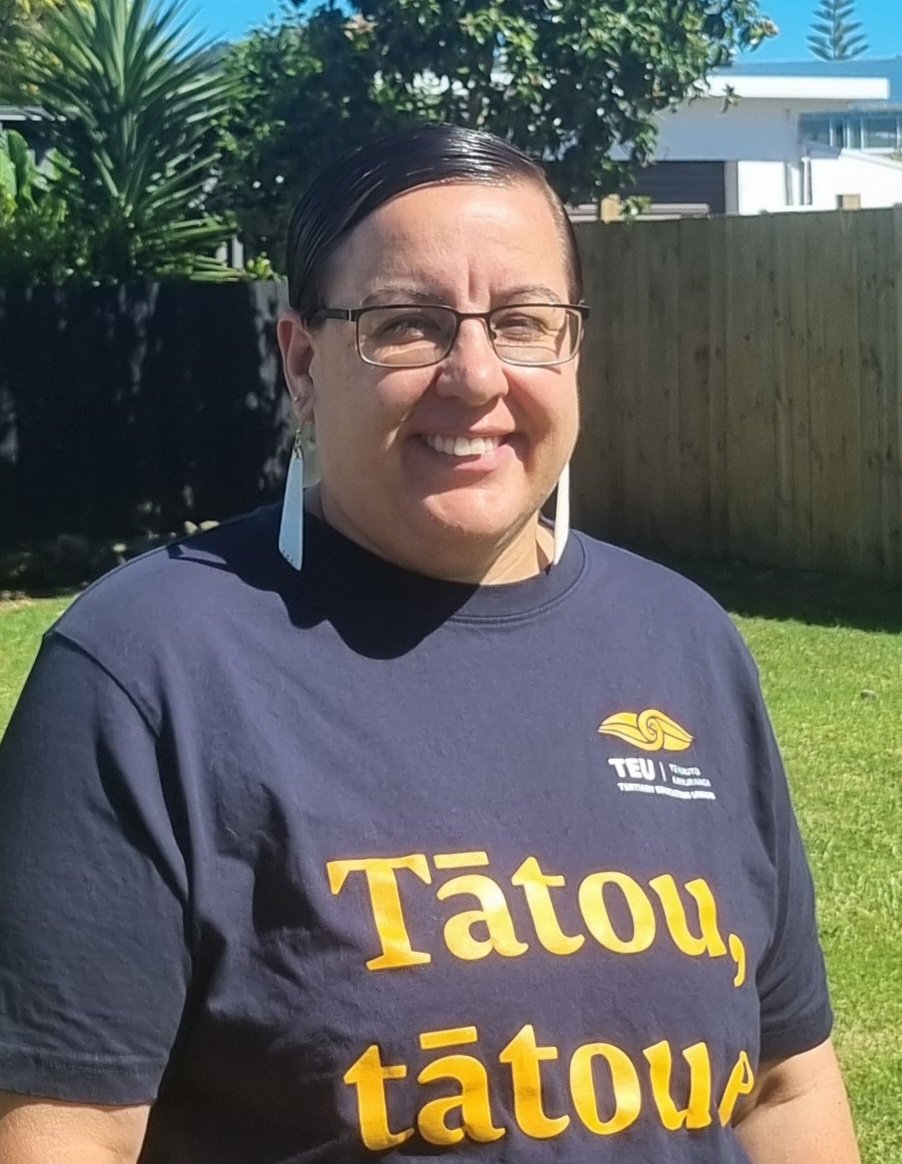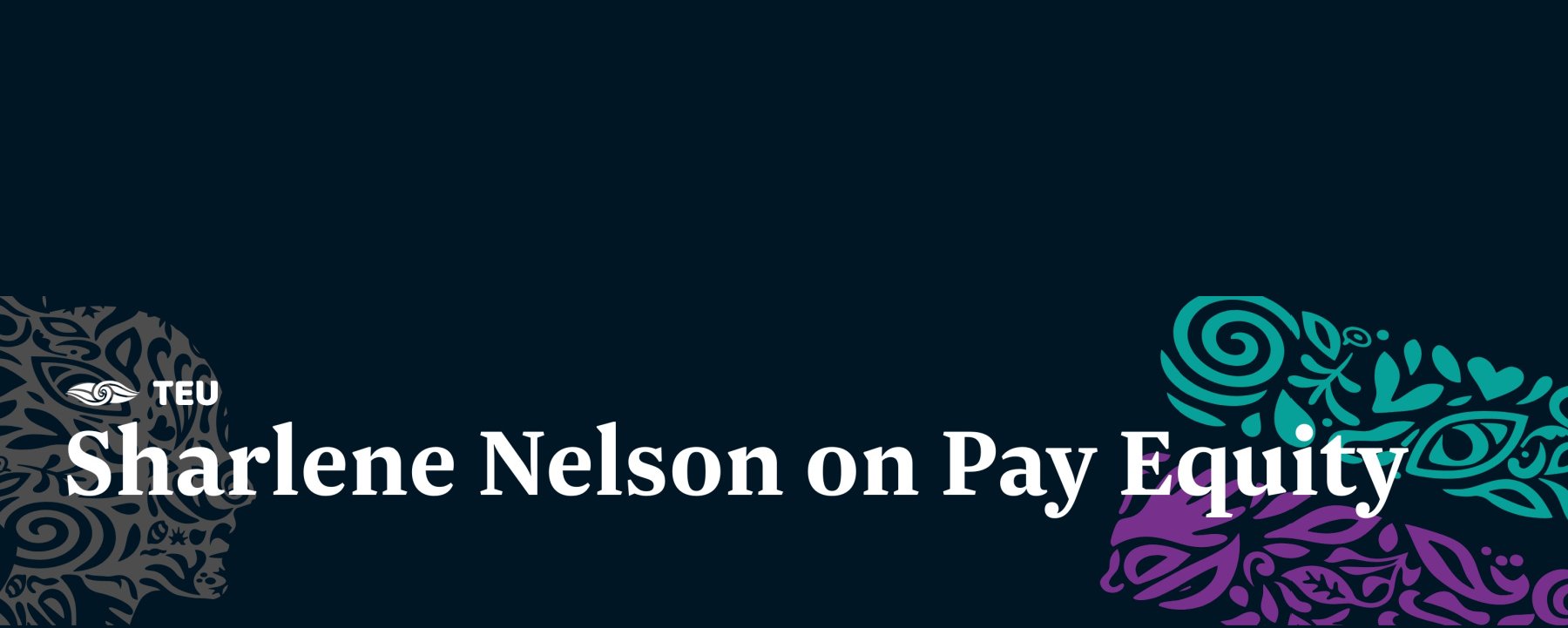Sharlene Nelson on Pay Equity.
Sept. 17, 2025

🗣️ Voice, Advocacy, and Support
Tell me a little about your mahi, what you do from day-to-day?
I currently work at NorthTec, where my day-to-day responsibilities vary. These can include rewriting assessments, supporting staff, assisting students with numeracy and literacy, contributing to the transition from training schemes to micro-credentials, and providing support for the Work-Based Learning (WBL) apprenticeships programme. Also helping our Union members when needed.
I know that you are a great advocate for wāhine in the workplace. How do you ensure that you feel safe and supported to raise concerns about pay or fairness for wāhine in their mahi?
I feel safe and supported to raise concerns about pay or fairness for wāhine in their mahi, particularly with the support of our Union. I have also actively helped women in my workplace to achieve better conditions, which has reinforced my confidence in raising these issues when needed.
🌱 Future Aspirations and Kaupapa Māori Solutions
What changes would you like to see to improve pay equity for wāhine Māori?
I would like to see greater transparency around pay scales, clear pathways for progression, and stronger recognition of the skills and experience wāhine Māori bring to their mahi. Providing targeted support, mentorship, and leadership opportunities would also help ensure wāhine Māori are not only fairly paid but are able to thrive and advance in their careers. Embedding equity into workplace policies and regularly reviewing pay data would make a real difference in closing the gap.
How could Māori values (like manaakitanga, kotahitanga, and whanaungatanga) be better reflected in the tertiary education sector?
Māori values could be better reflected in the tertiary education sector by embedding them into everyday practices, not just policy documents. For example, manaakitanga can be shown through creating genuinely supportive and inclusive environments for students and staff. Kotahitanga can be reflected in stronger collaboration between institutions, iwi, and communities, ensuring Māori voices are central to decision-making. Whanaungatanga can be strengthened by building authentic relationships with learners, recognising the importance of whānau, and creating spaces where cultural identity is valued and celebrated. By living these values in both teaching and workplace culture, the sector would feel more inclusive and empowering for Māori.
Are there kaupapa Māori solutions or approaches you think would support fairer pay and treatment of wāhine Māori?
Yes, I believe kaupapa Māori approaches would really help. From my experience, a whānau-centred way of working makes a big difference, because it recognises the responsibilities wāhine Māori carry outside of mahi as well as inside it. I also think bringing values like manaakitanga and kotahitanga into everyday workplace practices, not just policies, would support fairer treatment. Regular reviews of pay, alongside more opportunities for wāhine Māori to step into leadership and mentoring roles, would help create workplaces where their skills and contributions are properly valued.
🧠 Closing Reflections
How do you see low pay effects your colleagues and their whānau — for example with housing, health, or cultural responsibilities?
I have seen how low pay affects wāhine Māori colleagues and their whānau. It can create significant stress around meeting basic needs like housing and healthcare and can limit the ability to fully participate in cultural responsibilities or support their extended whānau. Low pay often impacts wellbeing and opportunities, making it harder for wāhine Māori to thrive both at work and at home.
If you could speak directly to government, what would you want them to understand about wāhine Māori and pay equity?
If I could speak directly to government, I would want them to understand that wāhine Māori continue to face barriers that should no longer exist. Instead of moving forward, it often feels like we have gone backwards as a country when it comes to pay equity. Wāhine Māori bring immense skill, resilience, and leadership to the workforce, yet their contributions are still undervalued. Government needs to prioritise meaningful, measurable action — not just promises — to ensure wāhine Māori are paid fairly and can thrive in their mahi.

